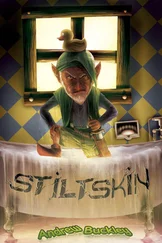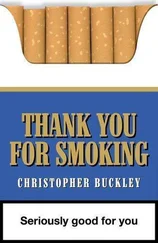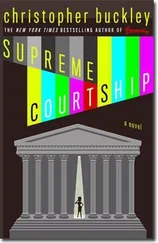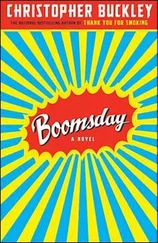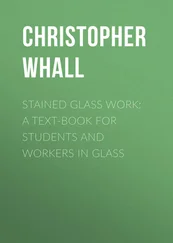Diatri stared.
"Do you want me to give a message to anyone?"
"Actually, that would be very helpful," said Diatri. He tore off two pieces of the chart and scribbled the same thing on both. "I leave it all to you. Frank." He folded them and on one wrote the name and address of his first ex-wife, and the other's on the second. He handed them to the commander. "Obliged."
The commander nodded. Diatri thought: This should be interesting. He said, "Could you do one other thing for me?"
The commander nodded.
"There's this priest, a Father Rebeta, at St. Mary's on West Thirty-ninth Street, right down by the Hudson River. Could you tell him… tell him that he should quit smoking."
The commander turned to leave. The seaplanes' propellers were turning. Diatri said, "Just tell him that I said hello. Tell him that."
He was in his private cable car eyeball-to-eagle-high over the Alps. She was skiing down a long, steep slope beneath him, her scarf trailing behind her. It was a stunning day, cool sparkling air, bright sun. Flawless. He was having coffee, settling down with The Wall Street Journal . He looked down. She waved up at him, he waved back. There was an explosion. The ridge of snow above her began to fall in slow motion. He tried to open the cable-car window to yell at her, to warn her. He pounded on it but it wouldn't open. He was yelling. Margaret looked up from her needlepoint and said, "Hush now, Charley." The wall of snow overtook her. She disappeared. All he saw of her was the scarf. He ran at the cable-car door and put his shoulder into it. It gave and he fell. An eagle flew by with a cigar in its mouth, scowling. He reached for the eagle and missed and went into the snow, bracing for impact, but kept going and broke through into clear blue sky. The snowbank was really a cloud. He fell. He yanked the ripcord. Nothing happened. He looked down at his hand and saw he was holding a watch fob and chain. He fell and fell. He saw the blue planet loom beneath, with hurricane-whorl eyes and typhoon mouth. The mouth bared wide, revealing rows of snowcapped teeth. His feet were starting to catch fire from the heat of reentry. Damnit, Margaret had forgotten to pack his ceramic shoes!
The blue planet turned into a face. The face said, " Tranquilo, billonario. "
He was buried in snow up to his neck. No… no… it was a clean sheet that stretched before him, sloping gently upward at his feet.
He heard, " Otra inyeccion. " He felt the cool alcohol rub on the inside of his arm, the prick of the needle, a warm river flow into his arm and chest.
"Thank you," he murmured.
" A sus ordenes, billonario. "
"Do you have The Wall Street Journal! " Someone laughed. Why was that funny?
Charley reached for the phone to tell Miss Farrell to bring in The Wall Street Journal . They felt very heavy for hands.
"Your hands were cut, billonario . They were full of gold splinters. You should be happy."
He held them up. Something metallic tugged at his right wrist. It looked like a heavy-gauge fishing leader.
"Rest, billonario . We have a busy day tomorrow." The lights went out.
Charley murmured, "Just orange juice and black coffee, thanks."
Kipu's body lay in front of the stone, where he had died from his wound after telling what had happened at Yenan. Kagkui, his mother, held his head and rocked it as she spoke to his spirit. The shaman blew tobacco smoke over the body so that his soul could leave his body without being seen.
Eladio sat at a distance, cross-legged, grinding achiote pods into a wet, red dust with his thumb against the sacred yuka stone from the stomach of a panther. He painted himself and went into the forest to sing the anen songs and fast while the men rubbed darts on the backs of frogs and dipped arrow tips in the fang milk of the jararaca.
Reynoso knocked, put his head in. "He wants to see you."
El Niño stood. Soledad was curled up fetally on the bed facing away from him, still holding her cheek where he had struck her. She had not moved since it happened. He sat on the edge of the bed and stroked her hair. She stared past him. He said, "They betrayed me, don't you see? They let the pistacos kill my men. If I had not killed Zacari, my men would have killed me out of anger. They would have killed you. It was necessary. Tomorrow I will send a gift to your father to make peace."
Soledad stared away. He left. Outside the room, he said to Reynoso, "Watch her."
He went downstairs to the basement room. Arriaga's men were huddled by the door. They stared at him with the usual suspicion, making him feel like an unworthy visitor in his own house. Arriaga required members of his personal bodyguard to prove their loyalty to him by killing with their hands a member of their family. He knocked and went in.
Arriaga's back was to him. He was looking at the painting.
"Goya," he said.
"Manet. 'The Execution of Maximilian.' But you're very observant. It was inspired by Goya's 'Third of May,' in the Prado."
Arriaga turned slowly in the chair to face him. "I have not come to discuss art with you, comrade."
"No, of course."
"You told your men there was gold on board the boat?"
My men. "My purpose was to take the American alive, with the yacht. The propaganda value is… impossible to estimate. The men were very agitated after the air attack. They only wanted to sink it. I reasoned that if they thought there was gold on board they would take a lighter touch."
Arriaga stared. He had learned not to fill Arriaga's conversational vacuums. Finally Arriaga said, "And?"
"We got him alive. Also one of his men. We spotted him with the helicopter, floating downriver on a life raft."
"And-was there gold?"
"No. As I say, it was a fiction, an incentive. But it worked."
"And what was your incentive in all this, comrade?"
"To present you with a gift beyond imagining, Comandante. A lot of my men died to get it. Shall we spend our time together examining my motives or may I get back to burying my dead?"
"No one is questioning your motives, Niño." Arriaga gave his vinegary smile as he exercised the prerogative of nullifying what he himself had just said. "What do you propose?"
He listened as El Niño explained his plan. "Good," he said. "Very good. I will communicate this to Presidente Gonzalo personally."
The mention of the name had great shock value; in another time and place it would be like uttering the sacred Tetragrammaton, YHWH. Arriaga was known to be one of the few Senderista cadres in direct contact with Abimael Guzman. Arriaga had never before spoken the name in his presence. It was both a compliment and a way of reminding him of Arriaga's significance.
"My communications equipment is temporarily out of order. But my own phone is at your service, of course."
Arriaga stared coldly. Guzman had not been seen in over ten years. It was said that Guzman's whereabouts were unknown-even to Guzman. To propose one's own phone to communicate with Sendero's founder and supreme commander was… a lapse of judgment.
"I will remain here while the plan is executed," said Arriaga.
"Good," El Niño lied.
"Do you have room for my men? This pathetic old man seems to have destroyed most of your infrastructure." It pleased Arriaga to use a word like "infrastructure" instead of "buildings."
"He was lucky. One of their bombs hit the chemical shed. That's what made the fire. My own house is at your disposal, Comandante."
Arriaga stood and stared at "The Execution of Maximilian." "The men in the firing squad, they're dressed up like penguins."
"Well, yes, you could put it that way."
Arriaga turned to him. "I do put it that way, comrade."
Читать дальше

